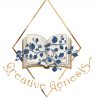
How to Play with Opposites to Spark Imagination
The Surrealist Antonym Game took simple sentences and turned them into creative masterpieces. By changing each word to its opposite, the kids unlocked big ideas and sparked thought-provoking discussions.





